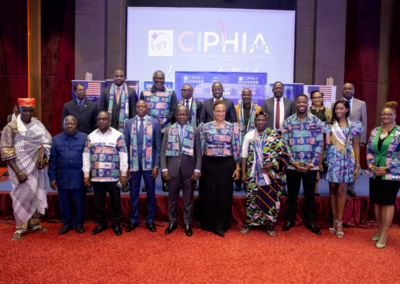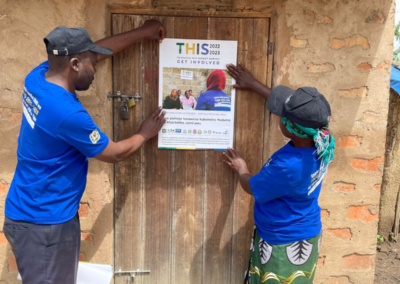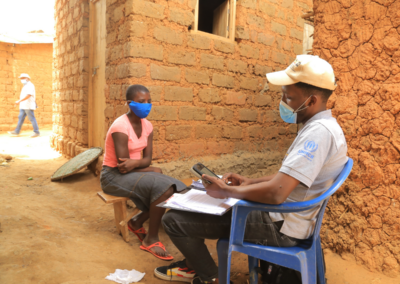April 29, 2021 – ICAP today announced the release of the final report of the 2017–2018 Cameroon Population-based HIV Impact Assessment (CAMPHIA) which highlights key findings on the status of Cameroon’s progress towards HIV epidemic control.
Led by the country’s Ministry of Health with technical assistance from ICAP at Columbia University, the CAMPHIA survey focused on providing estimates of HIV risk and burden by measuring annual HIV incidence, HIV prevalence, viral load suppression, and level of achievement of the Joint United Nations Programme on HIV and AIDS (UNAIDS) 90-90-90 targets.
The survey demonstrated that 3.7 percent of adults are living with HIV in Cameroon, representing approximately 500,000 individuals. The annual rate of new HIV infection among adults was 0.24, or 31,000 new cases per year.
Based on self-reported and antiretroviral (ARV)-detection data, it is estimated that, at the time of the survey, 55.6 percent of adults in Cameroon were aware of their HIV status; of those diagnosed, 93.1 percent were receiving antiretroviral treatment; and of those on treatment, 80.1 percent had achieved viral load suppression. Though there has been considerable progress in the nation towards achieving the second and third of the UNAIDS 90-90-90 targets, HIV diagnosis remains a challenge.
CAMPHIA received support from the United States President’s Emergency Plan for AIDS Relief (PEPFAR) through the United States Centers for Disease Control and Prevention (CDC).
From July 2017 to February 2018, CAMPHIA reached over 11,600 households and enrolled over 26,000 adults (15-64 years) and more than 7,000 children (0-14 years) in the survey. The survey offered HIV counseling and testing with return of results and collected information about use of HIV care and treatment services.
The survey found that HIV prevalence among adults was about two times higher among women (5.0 percent) than in men (2.3 percent). In addition, the survey identified a testing gap among young people aged 15-24 years: Only 20.7 percent of young people living with HIV were aware of their HIV status based upon self-report and ARV-detection data.
Results from the CAMPHIA final report will help inform national programmatic gaps and identify areas for intensified HIV response efforts, particularly in improving services to reach the UNAIDS 90-90-90 targets.
The CAMPHIA final report is now available at: https://phia.icap.columbia.edu/countries/cameroon.










